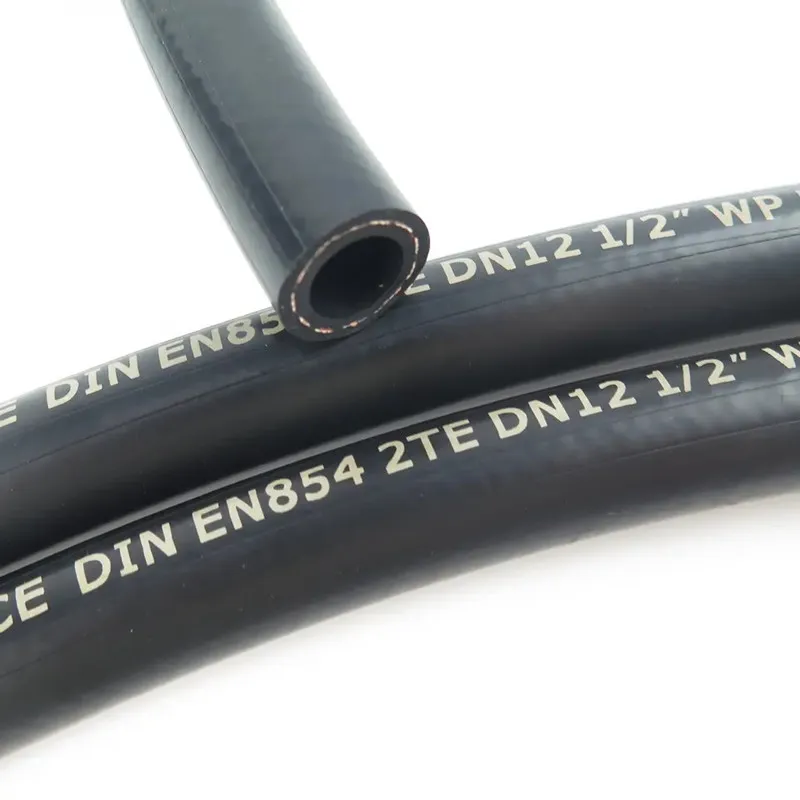Nov . 08, 2024 17:46 Back to list
flexible rubber hose
The Versatility and Advantages of Flexible Rubber Hoses
In today’s rapidly evolving industrial landscape, flexible rubber hoses have emerged as a critical component in various applications across multiple sectors. These hoses, characterized by their adaptability and resilience, serve functions that range from transporting liquids and gases to being integral parts of complex machinery. This article delves into the characteristics, uses, and advantages of flexible rubber hoses, illustrating why they are indispensable in many industries.
Characteristics of Flexible Rubber Hoses
Flexible rubber hoses are engineered from high-quality rubber compounds that provide them with remarkable flexibility and durability. The inherent elasticity of rubber allows these hoses to bend and maneuver without compromising their structural integrity. Unlike rigid hoses, flexible rubber hoses can easily navigate around obstacles, making them suitable for tight spaces and dynamic applications where movement is essential.
Furthermore, flexible rubber hoses are often reinforced with materials such as textile or wire braiding, which enhances their strength and pressure resistance. This reinforcement allows these hoses to handle high-pressure environments, making them ideal for industries like construction, automotive, and manufacturing, where pressure levels can fluctuate significantly.
Another critical characteristic is their resistance to environmental factors. Many flexible rubber hoses are designed to withstand exposure to chemicals, UV light, and extreme temperatures. This resilience ensures they maintain performance and longevity in harsh conditions, reducing the need for frequent replacements and minimizing downtime.
Applications Across Industries
The versatility of flexible rubber hoses enables their use in a myriad of applications. In the automotive sector, they are commonly used in fuel, coolant, and brake lines, where their flexibility ensures excellent performance and safety. In agricultural settings, flexible rubber hoses transport water and fertilizers, enabling efficient irrigation and crop management.
Moreover, in the industrial sector, these hoses are essential for conveying air and various liquids in manufacturing processes. They facilitate the operation of machinery by transporting hydraulic fluids, ensuring the smooth functioning of equipment. Furthermore, flexible rubber hoses are widely utilized in the construction industry for concrete placement and transferring water, showcasing their adaptability across diverse applications.
flexible rubber hose

In the chemical industry, these hoses are crucial for safely transferring hazardous materials. Their chemical resistance capabilities make them suitable for handling various solvents and acids, ensuring that safety and compliance standards are met. This application highlights their importance in maintaining operational safety and preventing environmental contamination.
Advantages of Flexible Rubber Hoses
One of the significant advantages of flexible rubber hoses is their ease of handling and installation. Their flexible nature allows for simple routing and maneuvering around existing structures, minimizing the need for complex fittings and connections. This not only saves time during installation but also reduces labor costs associated with the setup.
Additionally, flexible rubber hoses are lightweight compared to metal counterparts. This feature lowers transportation costs and simplifies the handling process, making them more user-friendly for operators in the field. The reduced weight also contributes to less wear and tear on machinery since lighter hoses exert less strain on connectors and fixtures.
Cost-effectiveness is another critical benefit. While the initial investment in flexible rubber hoses may vary depending on the application and specifications, their durability can lead to significant savings over time. With less frequent replacements and minimal maintenance requirements, organizations can optimize their operational budgets.
Lastly, the safety aspect cannot be overlooked. Flexible rubber hoses often come equipped with safety features such as burst resistance and anti-static capabilities, ensuring that they can function safely under a variety of conditions. This is particularly important in industries that handle flammable or reactive materials, where the risk of accidents can be high.
Conclusion
In conclusion, flexible rubber hoses play a vital role across various industries due to their versatility, durability, and cost-effectiveness. With their ability to withstand harsh environments and high pressures, they have become essential components in applications ranging from automotive to chemical conveyance. As industries continue to evolve and innovate, the demand for flexible rubber hoses will likely grow, driving manufacturers to further enhance their designs and capabilities. Whether you are in agriculture, manufacturing, or any other sector, investing in high-quality flexible rubber hoses is a decision that can lead to increased efficiency, safety, and overall operational success.
-
Best Four Steel Wire Spiral Hose Hydraulic R12 – Durable High-Pressure Hose Manufacturer
NewsJul.08,2025
-
High-Quality 1/4 Hydraulic Hose – Soft, Flexible & Durable Rubber Hoses for Industrial Use
NewsJul.08,2025
-
1 1 2 Inch Hydraulic Flexible Hose - Durable, Reliable, High-Pressure Solutions
NewsJul.07,2025
-
High-Quality 1 2 Rubber Hose - Durable, Flexible Hydraulic Solutions
NewsJul.07,2025
-
Discover SAE Hydraulic Hose Types - High Quality & Durable Hoses from Leading Factory Supplier
NewsJul.06,2025
-
High Pressure Wire Hydraulic Rubber Hose Supplier Durable & Reliable 1SN Hose Solutions
NewsJul.06,2025
